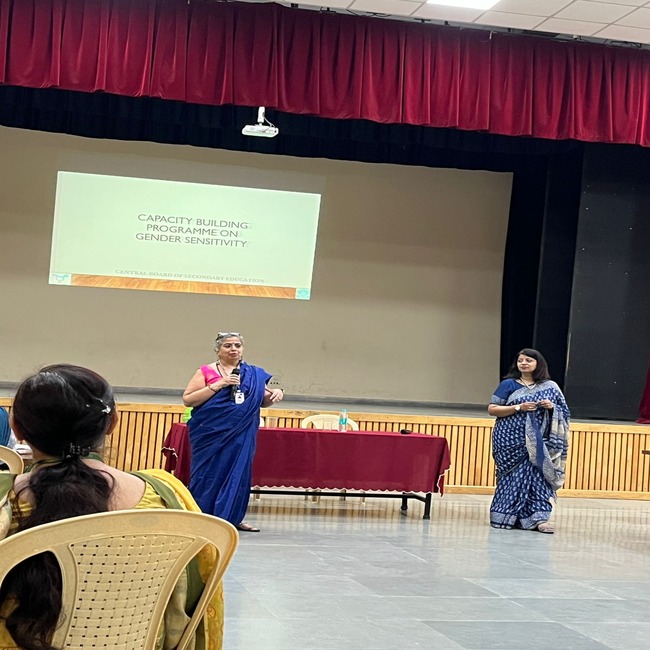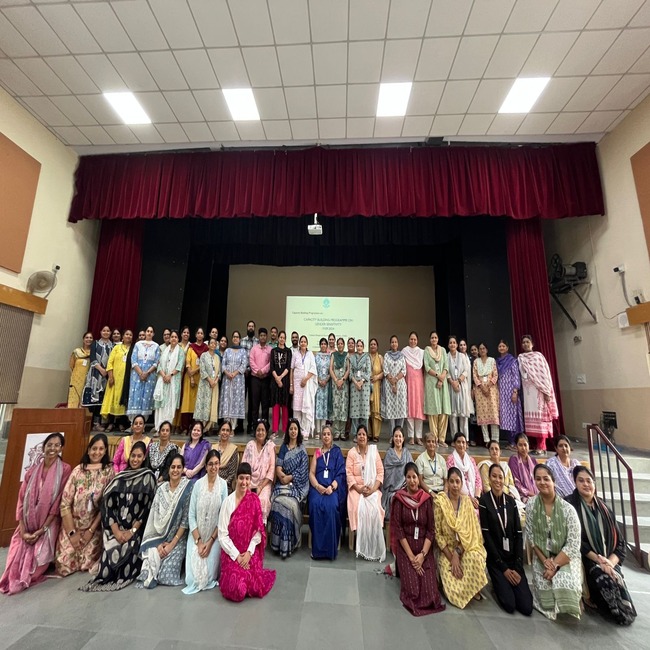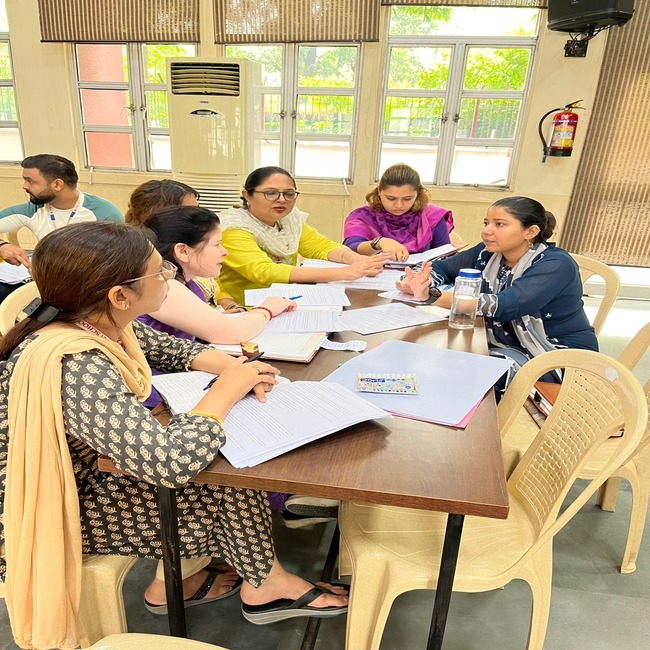CBSE teacher workshop on Building Gender Sensitivity in schools
The CBSE teacher Capacity Building Programme on Gender Sensitivity in Schools, held on 19 September 2024 at The Indian School, marked a pivotal effort towards fostering a more inclusive and equitable educational environment. The workshop for teachers addressed essential issues such as gender inequality and discrimination in both workplaces and schools, with a strong emphasis on raising awareness and promoting gender-sensitive practices among educators.
The resource persons for the workshop were Principal Ms Tania Joshi, ( who is also a CBSE Master Trainer, a member of the Review and Inspection Committee, ans a CBSE Councillor since 2013) and Dr Reetika Bhandari, Head of the Department of Chemistry at Guru Harkrishan Public School, ( also a CBSE Master Trainer).
The key topics explored during the session included understanding the distinction between sex and gender, and managing gender sensitivity in schools and professional settings. The workshop stressed the crucial role of schools as comprehensive communities, comprising students, teachers, administrators, and support staff where each member contributes to creating a gender-sensitive system.
The mentors emphasised that meaningful change is possible when adults, particularly educators, challenge and shift traditional attitudes and embrace a more inclusive approach that recognises the complexities of gender. They also highlighted how gender-sensitive education benefits everyone by enabling students to differentiate between valid assumptions and stereotypical generalisations. This form of education fosters a value-driven society where equal opportunities are extended to all individuals, regardless of their gender.
The various components of the workshop included the use of gender-neutral language, gender-appropriate lesson planning, and the creation of a gender-friendly school environment which were conveyed through a combination of activities, videos, and a PowerPoint presentation. Special attention was given to the empowerment of all genders, including transgender individuals, alongside nuanced discussions on gender relations, roles, and stereotypes, with the goal of fostering an inclusive teaching and learning process. These elements contributed to a dynamic and interactive learning experience for all the participants. Additionally, the activities were designed to build a supportive environment and to promote the development of systems and policies sensitive to the needs of all genders.
The workshop was in alignment with the goals of NEP 2020, which advocates gender-appropriate behaviour in schools and emphasises inclusive education for children of all genders. The workshop was a commendable step towards advancing gender sensitisation within the education system.















